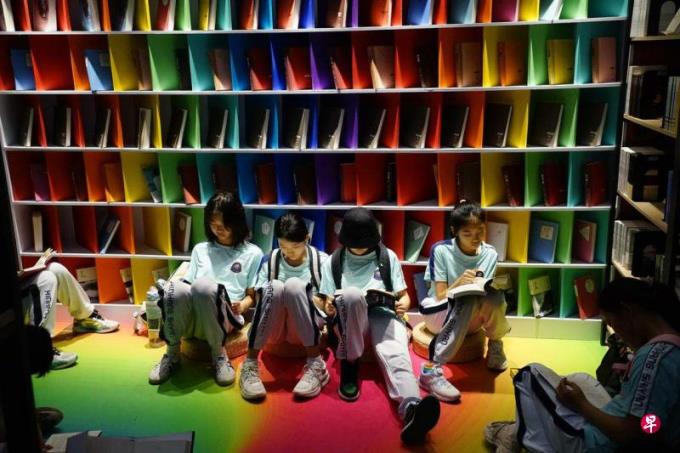
If the pressure to enter the university is not enough, the rigid structure of the school system makes the situation worse.Another cause of depression in teenagers is loneliness.For China, good news is a direct policy solution.The first is to get rid of the rigid, central plan school education.The second step is to cancel the restrictions on migration towards the city.These restrictions are being split families, causing rural families to be relatively poor.
China ’s youth unemployment is high, and young people are increasingly disillusioned. Many of them have“ abandoned ”the work, which has aroused widespread attention from global media and Chinese policy makers.The standard is that this problem is related to China's recent slowdown in economic growth.In fact, this problem is much more profound.
The incidence of depression in Chinese youth has risen, which has been darkest for decades. To a large extent, it must be attributed to China's rigid education system, past fertility policies, and strict migration restrictions.The childhood and adolescence of Chinese youths spent in endless stress learning, which is fatigue.The previous good university is considered a necessary condition for getting a good job; for rural children, according to the household registration system, the university diploma is the only way for the legal residence of the city.In cities, the average annual disposable income of the family is 6446 yuan (USD, the same below, about S $ 8,500), which enables people to live a middle -class life.In contrast, the average income of rural areas is only $ 2533, which means that life is relatively poor.
If the pressure to enter the university is not enough, the rigid structure of the school system makes the situation worse.After nine years of compulsory education, children must pass the exam to enter ordinary high schools, and the pass rate is only 50%.Young people who do not pass the exam can only go to a professional high school, and are destined to engage in low salaries.
Therefore, Chinese children started studying carefully when they were young.Not only do they have to go to school, they also receive expensive extracurricular counseling and participate in extracurricular activities such as music or chess, and the returns brought by these activities are not obvious.In order to alleviate part of the pressure, the government prohibits profit -making classes and prohibits public school teachers from providing such services part -time.But this will only increase more pressure, because the price of tutor rises with the decrease in supply.
Now, wealthy families in Shanghai and Beijing pay 120 US dollars to $ 400 for home tutors per hour, instead of children from rich families.In the 1980s and 1990s, there were children everywhere in rural and urban streets in China.Today, unless it is a holiday, children are rarely seen.Even on weekend afternoon, the playground is empty, and children are learning indoors.
Another cause of depression in teenagers is loneliness.Because of the only child policy from 1979 to 2016, children in urban areas have no siblings.Different from the first generation of children after the policy was introduced, several generations have not even played brothers and sisters to play together (because their parents have no brothers and sisters).A survey of Chinese college students found that typical only children are more likely to feel anxiety and depression than students with siblings.Since 2010, the suicide rate of children 5 to 14 has increased by more than five times.
Parents are also under tremendous pressure.In addition to taking care of children, middle -aged couples in most cities must also take care of four elderly parents.In contrast, in rural areas with a population of about 491 million, the implementation of only children's policy is not so strict, which means that adults usually have a burden on siblings.But with their children, they are facing greater pressure.Many people must go to the city to find a higher income, but the restrictions on household registration make them unable to bring their children with them.Today, about 11%of Chinese people are flowing from rural to cities, which means that about 69 million children have been left in rural areas.
Rural parents who could have been with their children began to face another problem.From 2000 to 2015, about 300,000 rural schools were closed, 12%of elementary school -age children and 50%of middle school students must often go to farm schools to go to school.Therefore, many rural adults must work for a long time in order to allow children who are separated from them after a few years.Ironically, if their children are finally talented, their chances of reunion are even lower, because most university graduates are settled permanently in the city.
In 2018, an average of 35%of Chinese adults said they suffered from depression.This ratio of rural areas and women is 50%higher. General depression is dangerous for any society, indicating that the future economic stagnation, low fertility rate and other problems are reminiscent of Japan after the 1990s.
For China, good news is a direct policy solution.The first is to get rid of the rigid, central plan school education.Local governments should be able to decide how many schools, how many students are recruited, and each of the high schools and universities should decide which students, including those who may not be good at exams when they were young.The government can still supervise the school, but most of the decision -making power should be decentralized and decentralized to improve the flexibility of the system.This alone can reduce a lot of pressure on young children and parents.
The second step is to cancel the restrictions on the migration of rural areas to the city. These restrictions are being split families, causing rural families to fall into relatively poor.With the slowdown of total growth, this solution has become particularly important.Rural areas cannot wait for the next round of growth.They need to get the same opportunity as urban families.In addition, rural labor can improve productivity by filling the factory's low -skilled jobs.Although it is difficult for college graduates to find high -paying jobs, there are still 30 million positions in the manufacturing and assembly industry.
These policies are not expensive.The efforts to change the school system will trigger the resistance of the existing interests, and allow free migration to exacerbate urban congestion.However, these measures will also bring obvious benefits, that is, to promote economic growth and improve the mental health of young Chinese and their parents.
The author is a professor of economics at Northwestern University, co -director of the Global Poverty Research Laboratory of Northwest University, and the founding director of the China Economic Laboratory
English Original Title: Why are so many young chinese depression?
All rights reserved: Project syndicate, 2023 .




